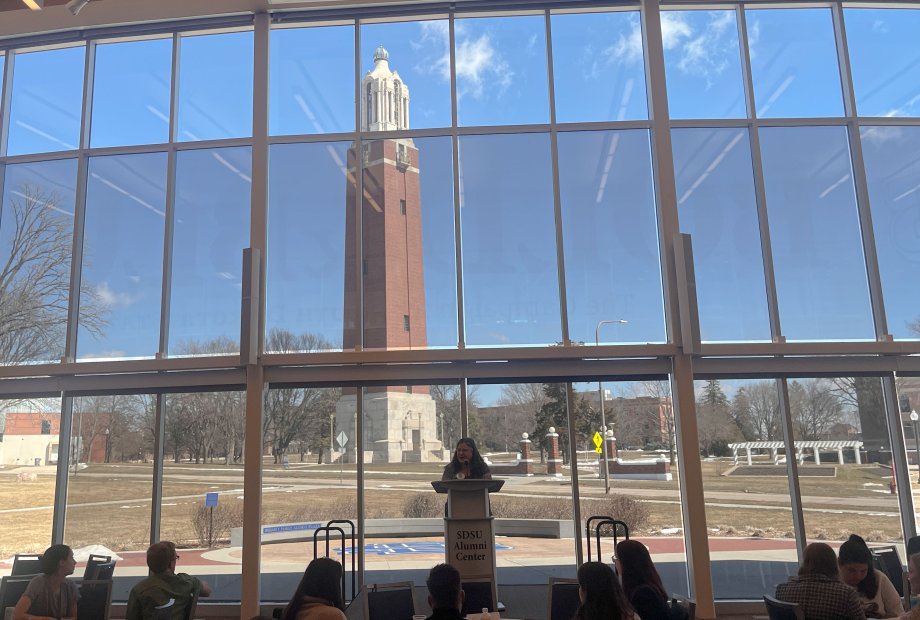
Wendy Davis spent part of National Public Health Week on South Dakota State University's campus, where she discussed her experiences with America's unspoken public health crisis, postpartum depression.
Over the past decade or so, the greater U.S. population has become more familiar with mental health disorders. But one specific type of mental health disorder — postpartum depression — is still relatively unknown to the general public.
Wendy Davis, the president and CEO of Postpartum Support International, came to South Dakota State University’s campus for Public Health Day to raise awareness and offer hope to those who have experienced postpartum depression.
“One in five birthing people are at risk of not living, just from mental health disorders, and at least 1 in 10 dads,” Davis said. “Is this a public health crisis? Why don't we hear about it as a public health crisis?”
Davis has been involved with perinatal issues since she experienced postpartum depression after the birth of one of her children. Starting first as a psychotherapist in 1987, Davis became involved in perinatal mental health after recovering from postpartum depression and anxiety in 1994. She shared a few anecdotes from her experience and journey during her April 2 talk.
“This was four weeks postpartum — I couldn't stop crying, I couldn’t stop shaking, and I had so much anxiety,” Davis said. “This was supposed to be the happiest time of my life, and I couldn't feel any love for this beautiful creature, and I didn't know what was wrong.”
According to Davis’ research, perinatal mood and anxiety disorders affect 14% to 23% of women during pregnancy and 11% to 21.9% of women in the postpartum period. Like many other mental health disorders, these issues come with stigma, as Davis outlined above. The stigma can function as a barrier and can prevent women from seeking treatment or even asking for help.
“Common thoughts for someone who has postpartum depression, anxiety, post-traumatic stress or psychosis is that this beautiful creature will be better off with my partner, my mother, my sister or my best friend,” Davis explained.
Davis is now the country’s leading expert on this issue and provided broader context to the importance of understanding perinatal mental health disorders and their impacts on mothers, infants and families throughout the rest of her hourlong talk. She founded Oregon’s first perinatal mental health support organization in 1994, became a support coordinator for Postpartum Support International in 1997 and was hired as its executive director in 2009.
“If you remember nothing else from today, remember these four points: One, it's not just postpartum. Rates of depression and anxiety in pregnancy are just as high. Two, it's not just depression. It's anxiety, OCD, post-traumatic stress, manic depression, bipolar disorders and psychosis.
“Three, it's not just moms. It's dads, too. The American Academy of Pediatrics was the first to do this research. One in 10 dads have actual significant clinical depression postpartum. So, if it happens to future dads, remember this: it's normal and common," Davis said. "Here's the fourth point — all perinatal mental health disorders are temporary and treatable, even the most severe symptoms.”
Davis’ talk, and the rest of the activities associated with Public Health Day and National Public Health Week on campus, were organized by Stephanie Hanson, a population health instructor at SDSU and director of BIRTH-SD-AIM (Bridging Information and Resources to Transform Health for South Dakota parents – Assessing need and Implementing Maternal health safety bundles), a project to improve perinatal health outcomes in South Dakota.
- Contact:
- Telephone number: 605-688-6161
Republishing
You may republish SDSU News Center articles for free, online or in print. Questions? Contact us at sdsu.news@sdstate.edu or 605-688-6161.

